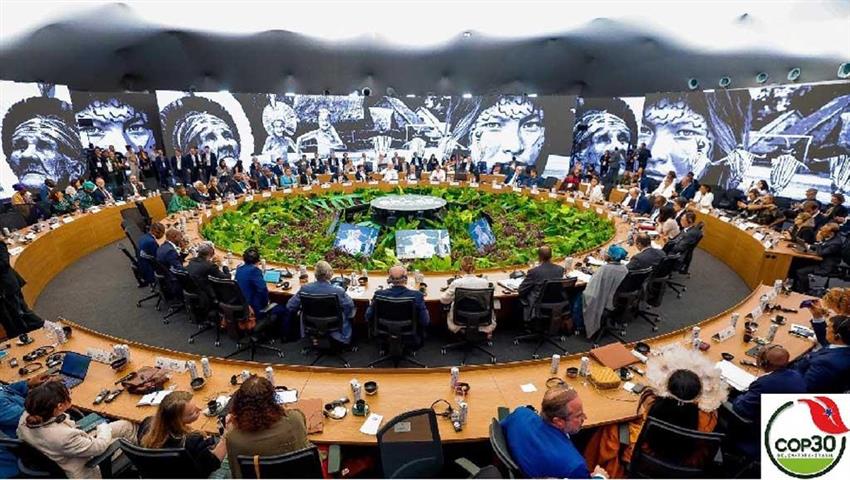The 30th United Nations Climate Change Conference (COP30) officially begins on Monday in Brazil, amidst a backdrop of trade disputes, armed conflicts, and the urgent need to translate rhetoric into real responsibility and action.
“COP30 can mark the moment when humanity starts anew, restoring our alliance with the planet and across generations… we choose courage over inaction, to change course in the fight against climate change,” stated COP30 President André Corrêa do Lago in a public letter.
He urged the more than 50 world leaders and representatives from over 160 countries to make Belém, the capital of the northern state of Pará, a hub of action to address the global climate crisis. In the document, Corrêa do Lago also recalls the trajectory of the debates on the climate crisis, which began with the Earth Summit (ECO-92) in Rio de Janeiro.
“In Belém, we will honor this continuity: our species’ capacity to cooperate, renew itself, and act together in the face of uncertainty,” he wrote.
He summarizes previous letters in this document, outlining the central priorities for COP30: strengthening multilateralism and the climate regime, connecting this atmospheric system with people’s lives and the economy, and accelerating the implementation of the Paris Agreement.
“With this tenth letter, I conclude a cycle of words so that the world can begin a cycle of action; we are on the verge of achieving it,” the ambassador emphasizes.
The Leaders’ Summit, held over two days in this city as a prelude to COP30, delivered political messages and urgent tasks such as accelerating the energy transition, expanding climate finance, and protecting tropical forests.
Announced commitments, such as the Tropical Forest Fund (TFFF), the agreement on sustainable fuels, and a new coalition for carbon markets, reveal a willingness to change, but also the magnitude of the challenges facing future negotiations.
Brazilian President Luiz Inácio Lula da Silva imbued the meeting with a tone of moral urgency. “In a scenario of insecurity and mistrust, selfish interests prevail over the common good,” he warned at the forum, demanding that COP30 “be the COP of truth.”
Lula presented the TFFF, a $125 billion fund intended to preserve the planet’s great forests, especially the Amazon, and transform their conservation into an economic asset for countries of the Global South.
He described the fund as one of the “main concrete results” that could emerge from the conference, reaffirming Brazil’s role as a central actor in the fight against the climate crisis and in the preservation of global tropical biodiversity.
[ SOURCE: teleSUR ]

